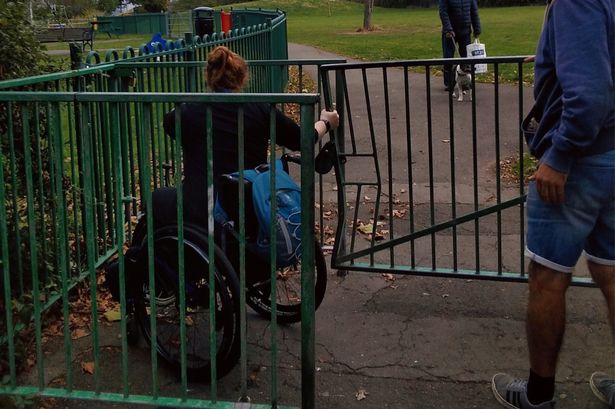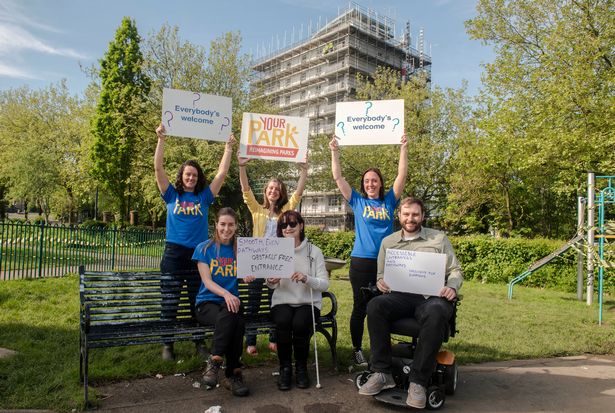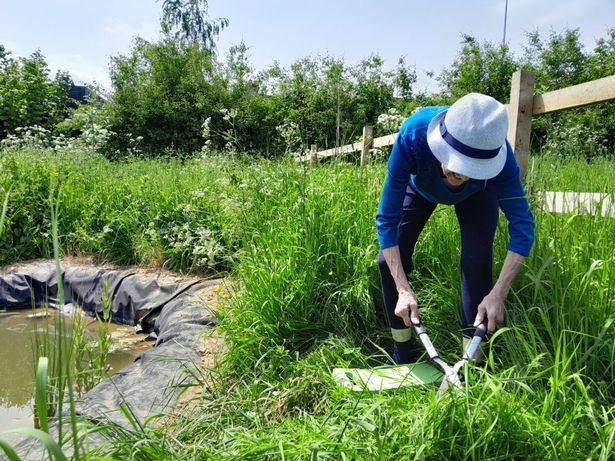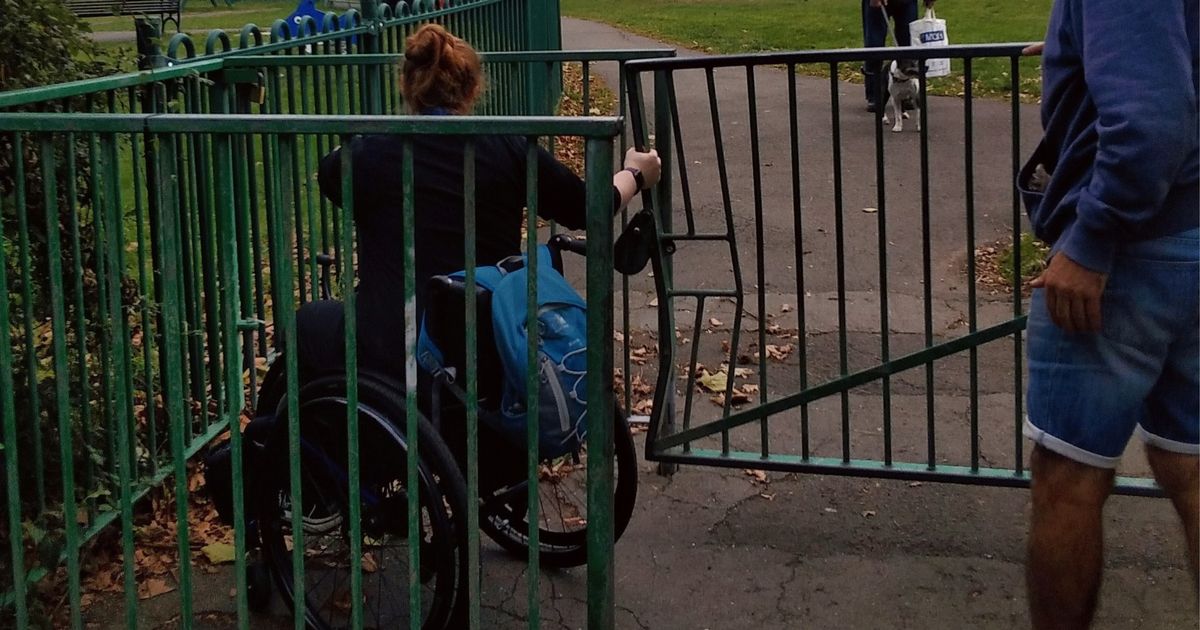A new project is rethinking access to green space from the ground up Wheelchair user struggling to access Bristol park(Image: Reach)
Wheelchair user struggling to access Bristol park(Image: Reach)
Disabled people and carers in Bristol and Bath are set to enjoy a breath of fresh air thanks to a major cash injection into making local parks more accessible. A £250,000 grant from the National Lottery Heritage Fund has been awarded to grassroots charity Your Park Bristol & Bath to help tackle long-standing barriers to access in green spaces.
The funding will support the charity’s ‘Parks 4 All’ initiative, the only project of its kind in the UK developed with disabled people and carers, aimed at transforming parks across the region into more inclusive spaces.
The grant follows a major research project by the charity which found that one in three local residents is either living with a disability or caring for someone who is. More than half of those surveyed reported that visits to local parks negatively affected their mental health due to poor access and a lack of appropriate facilities.
 YPBB team, Beata Cosgrove Photography
YPBB team, Beata Cosgrove Photography
Over the next two years, the Parks 4 All project will focus on three main areas. It will create the first community-led accessibility assessments for parks, in partnership with disabled people and carers. These will inform a toolkit to help local groups assess and improve green spaces, set to be published in 2026.
Secondly, it will launch a new series of fortnightly, accessible, and nature-focused activities in 11 parks across Bristol and Bath. These include guided sensory walking tours and inclusive volunteering opportunities at sites such as Blaise Castle Estate, Ashton Court, and Royal Victoria Park.
Finally, the project will train volunteers in inclusive practices and fundraising for park improvements, while also offering ongoing support for local parks groups.
Community-led accessibility assessments will begin at Withywood Park and Willmott Park in Bristol and Brickfields Park in Bath. Physical improvements will also be made at these sites and two additional parks, including new accessible benches, better pathways and entrances, raised planters and enhanced natural habitats.
 Nature focussed activities
Nature focussed activities
Charlee Bennett, chief executive of Your Park Bristol and Bath, said: “We are lucky to have an abundance of parks in Bristol and Bath – around 120 of them. However, imagine living close to a park but not being able to get through the gate or enjoy all it has to offer.
“This is the reality for around one in three people in our two cities and it’s why this project is so important. We are very grateful to the National Lottery Heritage Fund for this grant, which will enable us to help improve access for people with all disabilities and needs, including those that are deaf, physically disabled, blind, partially sighted and neurodivergent.
“And, as well as ensuring more people can access their local park, the project will also improve our green spaces through the introduction of fortnightly accessible nature-based activities in 11 local parks initially, so it really is a win-win for everyone.”
Colin Matthews, a local resident and new trustee of the charity, said: “As a wheelchair user, and disabled person, I feel it’s essential that parks and green spaces are made as accessible to disabled people and carers as they are to non-disabled people – which many parks currently are not. This project means more parks and green spaces across Bristol and Bath can be accessed and enjoyed by a wider variety of people – including disabled people who may not previously have even been able to get in the front gate.
“Now joining Your Park as a trustee, I’m very excited and enthused to continue to bring improvements to the accessibility and usability of parks and green spaces. We all benefit from time in nature, and the work Your Park has done over the last few years has shown that making parks accessible doesn’t need to be costly – simple measures can make a big improvement.”
Once developed, the Parks 4 All toolkit will first be used by Love Leeds Parks and The Parks Foundation operating in Bournemouth, Christchurch and Poole, before being rolled out nationally in 2026.
